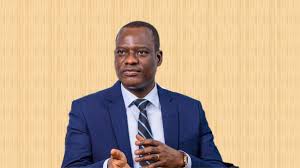Nigeria’s informal sector, often portrayed as a vast untapped source of government revenue, lacks the financial capacity to shoulder taxation, according to Taiwo Oyedele, chairman of the Presidential Fiscal Policy and Tax Reforms Committee.
Speaking during an interactive session with journalists, analysts, and social influencers weekend, Oyedele said data reviewed by the committee shows that more than ninety percent of operators in the informal economy are surviving at subsistence level and should not be taxed.
“This is the reason why Nigeria has ended up introducing multiple taxes, because we are trying to chase people in the informal sector every now and then,” Oyedele said. “When in fact, more than ninety percent of operators in that sector are just there for survival. They are just trying to find how to put food on the table one day to another. They have no capacity to pay taxes.”
He stressed that small-scale workers such as roadside food vendors, vulcanisers, and wheelbarrow pushers remain poor even when fully engaged, and taxing them amounts to penalising poverty. “If somebody is roasting corn by the roadside, if they have customers from when they resume in the morning till they close at night, they are still a poor person,” he said. “They have no capacity to pay taxes and should not be taxed.”
According to Oyedele, this philosophy underpins President Bola Tinubu’s stance that poverty and capital must not be taxed. “We should not tax seeds but wait for the fruits,” he said.
The fiscal policy chief explained that Nigeria’s new tax laws are designed to curb evasion, strengthen accountability, and remove opportunities for leakages. He said the Federal Inland Revenue Service (FIRS) collected more than N20 trillion in taxes last year and is on track to surpass that in 2025.
“These new tax laws have put in place more structures, more provisions, and more requirements to hold them to account, to make sure that they do their work with responsibility, that they are more diligent,” Oyedele said. “There are even instances in the new tax law where there are personal liabilities for an officer not doing what they are supposed to do.”
He added that all taxes must now be paid directly into the federation account rather than accounts controlled by FIRS, a change aimed at tightening transparency. The reforms also introduced a formal registration system for tax agents and stricter monitoring of consultants to close loopholes.
“Trying to evade your taxes now is more expensive under the new tax law,” Oyedele said. “As a consultant, you are being monitored with what you do. For the tax officer, that is even the one that is more risky now.”
He argued that by holding taxpayers, officers, and consultants accountable, the reforms will reduce corruption and rebuild public trust in Nigeria’s tax system. “Whatever it is that the FIRS is doing today, under the new tax law, it will be a better agency from all angles,” he said on The Daily Melon





